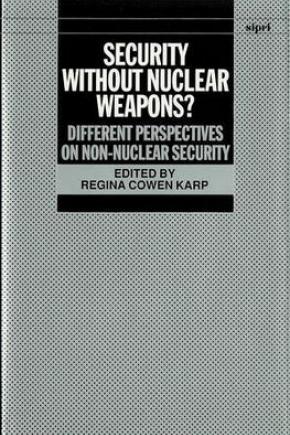Security Without Nuclear Weapons? Different Perspectives on Non-nuclear Security
The book's explicit focus on non-nuclear security takes issue with prevailing pro- and anti-nuclear views. The study challenges the assumptions of the strategic community that there is no alternative to nuclear security in an anarchic international system, and of the advocates of radical nuclear disarmament who propose solutions at the expense of security. Instead, the contributors argue that nuclear weapons abolition should be seen as a long-term process, pursued on a broad political front, aimed at a steady transformation of international politics that encourages security co-operation between states. Individual chapters of the book address the major conceptual, technical, and economic issues in the design of a non-nuclear security regime. Other chapters explore more specialized issues as they relate to the feasibility of the elimination of nuclear weapons: elite perceptions and the decision-making process, verification, nuclear proliferation, fissile materials and warheads, alliances and regional hegemonies, and deterrence.
1. Introduction
Regina Cowen Karp
2. Beyond nuclearism
Ken Booth and Nicholas J. Wheeler
3. Towards non-nuclear security: Costs, benefits, requisites
Erwin Häckel
4. Legal issues concerning the feasibility of nuclear weapon elimination
Julie Dahlitz
5. Thinking about no nuclear forces: Technical and strategic constraints on transitions and end-points
Paul C. White, Robert E. Pendley and Patrick J. Garrity
6. Verification of nuclear weapon elimination
Patricia M. Lewis
Appendix 6A. Tagging for verification
7. Nuclear weapon elimination: Fissile material and warheads
Frank von Hippel
8. The end of superpower nuclear arms control?
Lynn Eden
9. Nuclear proliferation and the elimination of nuclear weapons
George H. Quester
10. The role of hegemonies and alliances
Harald Müller
11. Minimum deterrence and nuclear abolition
Nicholas Wheeler

